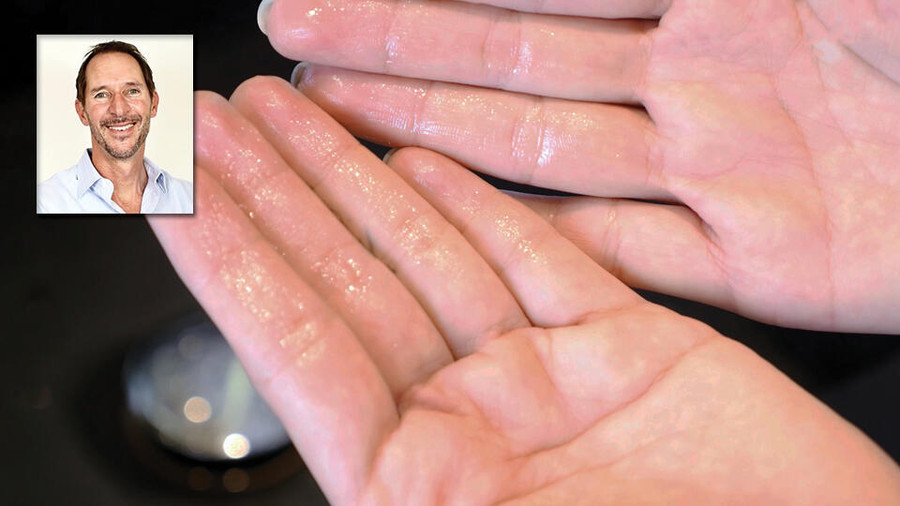For as long as water-based lubricants have been around, there have been preservative systems in place to maintain the integrity of the product. To understand preservative systems, however, we need to take a step back and look at the most basic reasons why we need to know about preservatives in the first place.
First, while we may tend to associate the word “preservative” with chemicals or additives, preservatives actually occur naturally all around us, keeping the growth of microorganisms like bacteria and fungi at bay. Fruits and vegetables have preservatives built right into their genetic makeup. Otherwise, the fruit would rot before it had a chance to ripen. You will find naturally occurring sodium benzoate in a variety of berries, as well as methylparaben in both strawberries and blueberries. In grapefruits, the seeds help preserve the entire fruit from rotting, which is why grapefruit seed extract is used in several products as a natural preservative.
In the future, CHA will likely become a common preservative of water-based formulas where product safety is the top concern.
The challenge with preservatives is that they can often be irritating; even naturally derived substances like grapefruit seed extract can still cause sensitivity. Using the right preservative is therefore especially crucial in the world of personal lubricants because the product is used on some of the most sensitive areas of the body. The ideal solution is to find a preservative that is safe, nonirritating, and effective at keeping microorganisms under control.
Given the importance of preservatives in our everyday lives, there has been tremendous research globally on the safety of preservative systems. Some of the more widely used preservatives in personal care and cosmetics include tocopherol acetate, propylene and butylene glycols, disodium EDTA, phenoxyethanol, sodium benzoate, potassium sorbate, anisic acid and parabens including methylparaben, polyparaben and butylparaben. With so many to choose from, there are several challenges brands may face when it comes to picking the right preservative for their products. Although research has eliminated several preservatives that are deemed dangerous, brands are still dealing with misconceptions that have pushed them to seek out different ways to preserve their products. For example, the widespread mistaken belief that all parabens are dangerous has caused a lot of brands to eliminate the ingredient from their products. However, there are five types of parabens and three of them are safe to use — like methylparaben, which, as previously mentioned, can be found naturally occurring in strawberries and blueberries. The other two have been eliminated from use and have not been seen in products for a long time.
Another challenge brands may face is making sure the preservatives they choose are sufficient. A combination of several of the previously mentioned ingredients is often needed in order to fully protect the product. However, over years of research, preservative systems have dramatically changed and evolved as new and better techniques for preserving products have been discovered.
As we were developing our new glycerin- and paraben-free formula, we challenged ourselves to find new and better techniques separate from the current industry standard to preserve our new formula. We researched and studied what leading manufacturers were using in baby care brands. We figured if the ingredient is safe to use on babies, then it is likely safe to use in a lubricant. That was when we discovered a small but powerful preservation system with only one ingredient, Caprylhydroxamic Acid.
Caprylhydroxamic Acid, or CHA, is an amino acid naturally derived from coconut oil. It has a neutral pH, which is great for leave-on and rinse-off products such as lubricants. CHA uses “hurdle technology” to kill off harmful organisms and is a gentle preservative that ensures product safety and longevity. Hurdle technology works by combining more than one approach. These approaches can be thought of as "hurdles" that the pathogen has to overcome if it is to remain active. The right combination of hurdles can ensure all pathogens are eliminated or rendered harmless in the final product. This type of new preservative technology eliminates the need to use several different ingredients to kill off a wide range of organisms and is effective at lower use levels. Additionally, CHA is a great alternative to parabens.
This description of CHA serves as a quick information snapshot based on the years of data collection, research and development. In the future, CHA will likely become a common preservative of water-based formulas where product safety is the top concern. We back this ingredient 100%, and we are utilizing CHA as the preservation system in our most recently launched product. Innovation is the foundation of our work and permeates our company culture, so I am pleased to share this latest find with the industry while encouraging my colleagues to incorporate it into their own future formulations.
Gregg Haskell is the president and founder of Westridge Laboratories, the makers of ID Lubricants.




